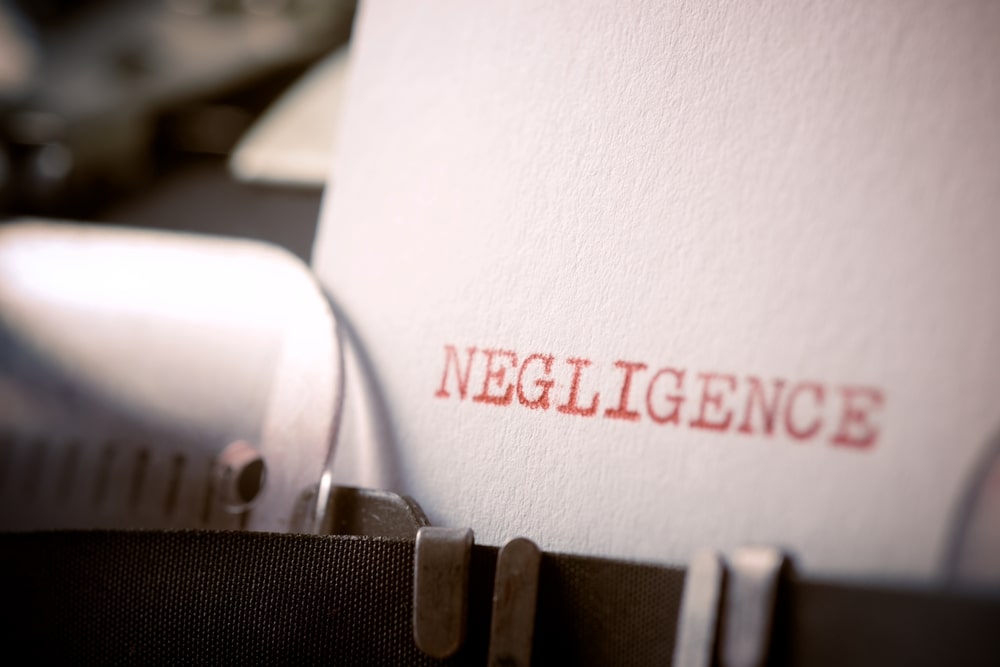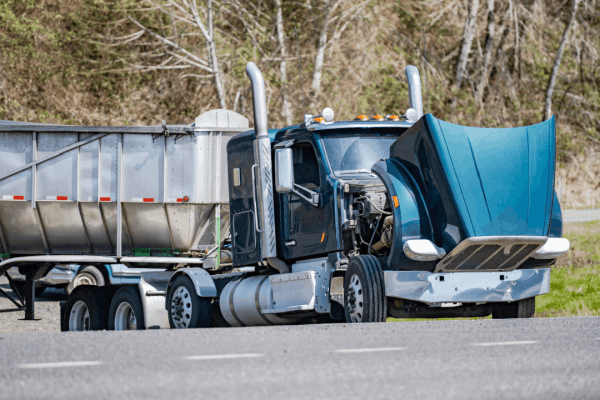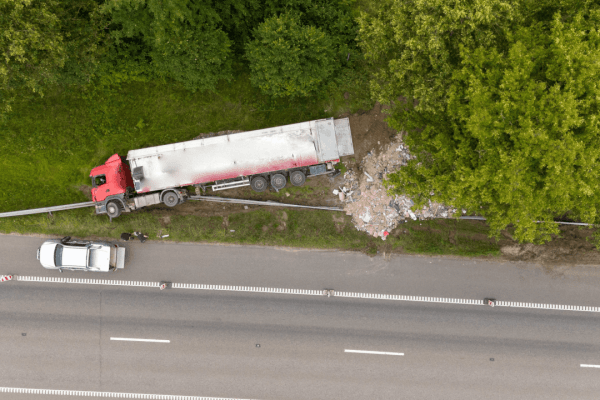
How Do I Prove Negligence in a Truck Accident Case?
Understanding the Question: How Do I Prove Negligence in a Truck Accident Case?
How do I prove negligence in a truck accident case? That’s the question most victims ask when they’re trying to hold a trucking company or driver accountable for their injuries. Proving negligence is essential to recover compensation for your damages, whether you’ve suffered physical injuries, financial losses, or emotional distress.
This article breaks down the key elements of proving negligence, including how fault is established, what evidence is most persuasive, and the steps accident victims need to take right after the crash.
The Legal Standard: What Is Negligence in Truck Accident Cases?
Negligence in a truck accident case refers to a situation where the truck driver, the trucking company, or another party failed to act with reasonable care, leading to the accident and resulting harm.
To prove negligence in a truck accident case, you must typically show:
- Duty of Care – The truck driver or company had a legal duty to drive safely and follow federal/state regulations.
- Breach of Duty – That duty was violated (e.g., driver was speeding, fatigued, or intoxicated).
- Causation – The breach of duty directly caused the accident and injuries.
- Damages – The victim suffered measurable harm (e.g., medical bills, lost wages, pain and suffering).
Each element must be supported with credible, admissible evidence. Truck accidents often involve more complex layers than ordinary car crashes because of federal regulations and potential multiple liable parties.
Gathering Evidence to Prove Negligence After a Truck Accident
Proving negligence requires collecting strong evidence from the moment the crash occurs. The more documentation and proof you can secure, the stronger your legal claim becomes.
Here are critical types of evidence you’ll need:
Police Reports
Police reports contain crucial details such as:
- Officer observations
- Witness statements
- Citations issued
- Preliminary fault assessments
These reports often serve as starting points for identifying who acted negligently.
Photographs and Video Footage
Photos from the crash scene, traffic cameras, or dashcams can help prove:
- Vehicle positions
- Road conditions
- Impact points
- Whether traffic laws were violated
Video can often reveal whether a truck changed lanes improperly or ran a red light.
Driver Logs and Black Box Data
Federal regulations require commercial truck drivers to log their driving hours. The truck’s “black box” or Electronic Logging Device (ELD) can show:
- How long the truck was in operation
- The truck’s speed and braking patterns
- Driver fatigue or Hours-of-Service violations
This data is critical in truck accident cases where overwork or speeding might be a factor.
Maintenance and Inspection Records
Trucking companies must keep vehicles in safe condition. If a truck involved in a crash had faulty brakes or bald tires, maintenance logs can demonstrate negligence by the company or mechanic.
Identifying All Potentially Negligent Parties
Unlike typical car crashes, truck accidents may involve multiple parties whose negligence contributed to the incident. These can include:
- Truck driver – for reckless driving, fatigue, or impairment.
- Trucking company – for negligent hiring, training, or maintenance.
- Cargo loaders – for improperly loaded freight that caused the truck to overturn.
- Truck manufacturers – if mechanical failure or defective parts contributed.
How do I prove negligence in a truck accident case when multiple parties are involved? You must gather evidence linking each potential party’s actions (or inactions) to the cause of the crash. This often requires help from experts such as accident reconstructionists or trucking safety specialists.
Using Expert Witnesses to Strengthen Your Case
When asking, how do I prove negligence in a truck accident case, one essential tactic is leveraging expert testimony. In complex truck accident cases, expert witnesses can provide professional analysis that supports your claim of negligence.
Types of Expert Witnesses Commonly Used:
- Accident Reconstruction Experts
These specialists analyze physical evidence—like skid marks, vehicle damage, and road layout—to reconstruct how the crash occurred and who was likely at fault. - Trucking Industry Experts
They interpret compliance with federal trucking regulations, like Hours of Service rules and equipment maintenance standards. - Medical Experts
These professionals can link your injuries directly to the accident and explain the long-term impact. - Economists
When calculating damages like lost future income or reduced earning capacity, economic experts help prove financial harm resulting from the crash.
Their testimony can turn technical details into compelling courtroom evidence.
Legal Doctrines That Help Prove Negligence
Understanding the legal frameworks that apply to truck accident cases can make your case stronger. In many cases, more than one legal doctrine may be used to establish negligence.
Respondeat Superior (Employer Liability)
This doctrine holds that an employer (e.g., a trucking company) may be held liable for the negligent acts of its driver, provided the driver was acting within the scope of employment.
Negligent Hiring, Training, or Supervision
If the company knew—or should have known—that the driver was unfit (due to a poor driving record, DUI history, etc.), it can be found negligent for hiring or failing to supervise them.
Negligence Per Se
If a truck driver violated a safety law or regulation (e.g., driving over the legal limit or ignoring rest break rules), that violation may automatically establish negligence under this doctrine.
The Role of Comparative Fault
Another important piece of the puzzle in proving negligence is understanding how comparative fault may apply in your state. This legal rule determines how damages are awarded when both the plaintiff and the defendant share some blame.
Example:
If fault is shared between parties, compensation may be reduced based on each party’s level of responsibility, depending on state law.
Even if you’re partially to blame, you may still be able to recover damages, depending on your state’s specific rules. Proving that the truck driver or company had the majority share of negligence is key to maximizing your settlement.
Steps to Take Immediately After a Truck Accident
Knowing how do I prove negligence in a truck accident case starts with what you do in the moments and days after the crash. Acting quickly and strategically can preserve crucial evidence and strengthen your case.
Here’s what to do:
- Call 911 Immediately
Always ensure a police report is filed and medical attention is received. - Document the Scene
Take photos of vehicle damage, the surrounding area, road signs, and injuries if possible. - Collect Contact Information
Get names, phone numbers, and insurance details of the truck driver and any witnesses. - Avoid Making Statements to Insurers
Don’t admit fault or downplay your injuries when speaking with insurance representatives. - Consult a Truck Accident Lawyer Early
An experienced attorney can start gathering evidence, contacting experts, and sending preservation letters to secure logbooks and black box data.
These actions can make the difference between a weak claim and a well-supported negligence case.
Common Mistakes That Can Hurt Your Case
Even with solid evidence, errors in the legal process can derail your ability to prove negligence.
Avoid these common pitfalls:
- Delaying medical care – Waiting too long may cast doubt on the severity of your injuries.
- Not preserving vehicle damage – If your vehicle is repaired before it’s documented, vital evidence may be lost.
- Ignoring deadlines – Each state has a statute of limitations for filing a personal injury lawsuit.
- Posting on social media – Any statements or photos can be used to challenge your credibility.
Being proactive and cautious throughout the legal process is just as important as collecting the right evidence.
Common Defenses Trucking Companies Use to Dispute Negligence
Even when victims gather strong evidence, trucking companies and their insurers often fight back using aggressive defense strategies. Understanding these common defenses can help you prepare and strengthen your claim when asking, how do I prove negligence in a truck accident case?
Claiming Comparative or Contributory Negligence
One of the most common defenses is arguing that the injured party was partially or fully at fault. In comparative negligence states, your compensation may be reduced based on your percentage of fault. In contributory negligence states, being even 1% responsible could bar recovery altogether. This makes it vital to collect clear proof showing the truck driver or company was the primary cause.
Alleging a Sudden Medical Emergency
Defense attorneys may argue that the truck driver had a sudden, unforeseeable medical event—such as a seizure or heart attack—that led to the crash. If they can prove the condition was truly unexpected and not previously diagnosed, they might avoid liability. Your legal team will need medical records, prior logs, and driving behavior analysis to challenge this claim.
Pointing to a Third Party’s Fault
Trucking companies sometimes shift blame to other drivers, vehicle manufacturers, or cargo loaders. For example, they may claim a faulty brake system or improperly loaded cargo (done by another company) contributed to the accident. This is why truck accident investigations often require identifying multiple potentially liable parties.
Asserting Compliance with Federal Regulations
A common tactic is to show that the trucking company and driver complied with all Federal Motor Carrier Safety Administration (FMCSA) regulations. While regulatory compliance is important, it does not always eliminate negligence. For instance, a driver may follow hours-of-service rules but still be fatigued due to personal circumstances.
Disputing the Severity of Injuries
Even if fault is admitted, insurers may dispute the extent of your injuries or argue they were pre-existing. To counter this, medical documentation, expert testimony, and clear treatment timelines are crucial.
Proving Negligence in a Truck Accident Case Takes Strategy
If you’re still asking, how do I prove negligence in a truck accident case, the answer is clear: you need the right evidence, the right legal approach, and often, the right legal representation. Proving negligence requires connecting the dots between the driver’s actions (or inactions), the trucking company’s policies, and how those factors led to your injuries. From securing black box data and hiring experts to understanding legal doctrines like respondeat superior or negligence per se, every detail counts. The sooner you take legal action, the better your chances of holding the at-fault party accountable.
Get Legal Help to Prove Negligence in Your Truck Crash
If you’re asking, “How do I prove negligence in a truck accident case?”—you don’t have to face the process alone. At Trucking Accident, we connect victims with experienced truck accident attorneys who know how to build strong claims, gather critical evidence, and negotiate with insurance companies.
Get a free claim review to understand your legal rights and options. Take the first step toward justice with the trusted support you deserve.
Frequently Asked Questions (FAQs)
1. What evidence helps prove negligence in a truck accident?
Key evidence includes the police report, black box data, dashcam footage, logbooks, maintenance records, and eyewitness statements. These details help establish what caused the crash and who is liable.
2. Can I still recover damages if I was partially at fault?
Yes, depending on your state’s comparative negligence laws. Even if you were partially responsible, you may still receive compensation if the truck driver or company held the majority of fault.
3. How long do I have to file a truck accident lawsuit?
Each state has its own statute of limitations. In many cases, it’s 2–3 years from the date of the accident. Consult a lawyer immediately to avoid missing the deadline.
4. Will the trucking company be held liable or just the driver?
Both the driver and the company may be liable. If the company was negligent in hiring, training, or supervising the driver—or if the driver was acting within the scope of employment—the company can be held responsible.
5. What role do expert witnesses play in proving negligence?
Expert witnesses such as accident reconstructionists, trucking safety experts, and medical professionals provide critical insight that can strengthen your claim and make complex facts easier to understand in court.
Key Takeaways
- Proving negligence in a truck accident case requires clear evidence linking the driver or company’s actions to your injuries.
- Essential documentation includes police reports, black box data, maintenance records, and logbooks.
- Expert witnesses can clarify fault, injury impact, and industry standards in court.
- Legal doctrines like respondeat superior and negligence per se are often used to hold trucking companies liable.
- A truck accident attorney helps preserve evidence, avoid mistakes, and build a strong case for compensation.



